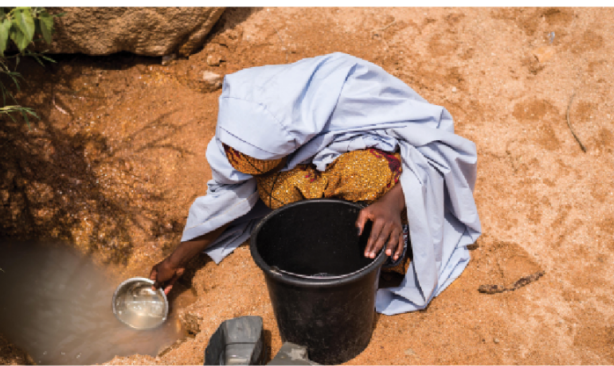
Cases of cholera, also known as acute watery diarrhoea (AWD), are surging around the world. Since January this year, many countries that had not reported outbreaks in years have been detecting it in their communities.
Cholera is a waterborne disease, spread by eating food or drinking water that is contaminated with the bacteria. Malnourished children are most at risk as it can cause severe dehydration and, if left untreated, can lead to more health complications including death.
The rapid spread of cholera we see today is made worse by weak water and sanitation systems, climate change, conflict and poverty, all of which make access to safe water more challenging.
This is particularly troubling as some states have not experienced large-scale outbreaks in over a decade, highlighting a deteriorating situation for children and families.
Only recently, the Nigeria Centre for Disease Control and Prevention (NCDC) revealed that a total of 1,141 suspected and 65 confirmed cases of cholera with 30 deaths have been reported from 96 local government areas (LGAs) in 30 states of the federation.
NCDC, in its public health advisory released on Thursday, , said Bayelsa, Zamfara, Abia, Cross River, Bauchi, Delta, Katsina, Imo, Nasarawa, and Lagos states are the 10 states that contributed 90 percent to the burden of cholera currently in the country.
Cholera is a food and water-borne disease caused by the ingestion of the organism vibrio cholerae in contaminated water and food.
On food and water contamination, NCDC explained that “Water is usually contaminated by the faeces of infected individuals,” adding that contamination of drinking water can occur at the source, during transportation, or storage at home.
“Food may be contaminated by soiled hands during preparation or while eating.
“Beverages prepared with contaminated water and sold by street vendors, ice, and even commercial bottled water have been implicated as vehicles of transmission, as have cooked vegetables and fruits freshened with untreated wastewater.”
Therefore, the centre has alerted the public to the increasing trend of cholera cases across the country as the rainyseason intensifies.
However, NCDC said the multi-sectoral National Cholera Technical Working Group has supported the affected persons.
With this revelation , early detection and a quick response to contain the outbreaks is vital – work
Concerned bodies like UNICEF should support governments to do so. This should be done by engaging with communities on safe water and sanitation practices, strengthening health systems and rolling out the oral cholera vaccine (OCV), which is a crucial element to prevent recurrence in cholera ‘hotspots’.
The NCDC, Should as a matter of fact, take the lead in engaging with communities to understand people’s perception of risk in a disease outbreak – a crucial activity to inform how preventative measures against it can be adopted and maintained. This should be done done by training frontline health care workers and engaging with community networks, including local influencers, to improve behaviour change efforts within the most vulnerable populations.
This means talking to people about how to treat sick family members and stop the spread of infection, with an initial aim of identifying the source of the outbreak and preventing it from worsening. In some cases, teams may even disinfect a patient’s home and instruct them on how to maintain safe water and sanitation practices in the future.
The ability to reach as many people with these messages as quickly as possible following the detection of cholera in Nigeria is of utmost importance.
Although community-based outreach is crucial, NCDC also shares information through text messaging and social media.
In fact, the question is , since the realisation of the outbreak of cholera in the country, how many million people have received messages on prevention, treatment and care through national and community radio stations?
While vaccination against cholera is one of the main tools available to respond to cholera outbreaks, current challenges in vaccine availability and the effect of natural disasters, conflict and inadequate sanitation systems mean the impact on countries is growing.
Amid this fast-evolving landscape, the NCDC Should step up its efforts to reach children and their families with the life-saving supplies and community-based support they urgently need
